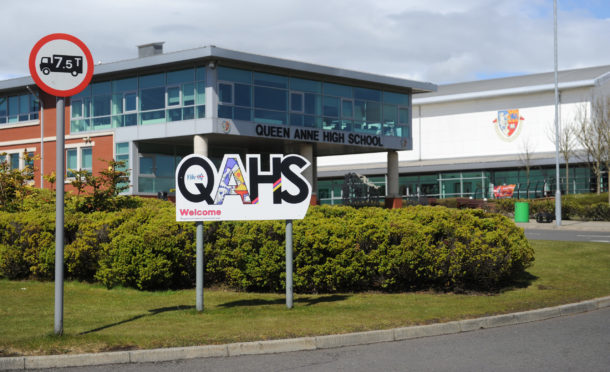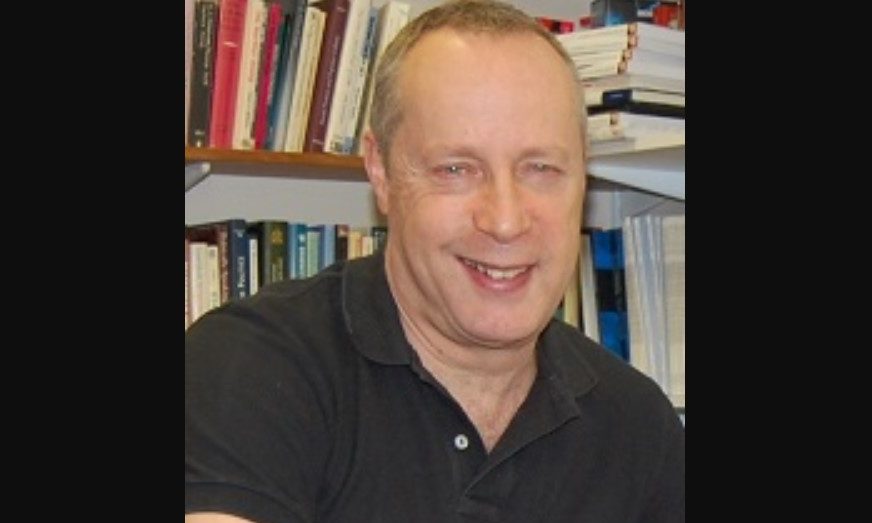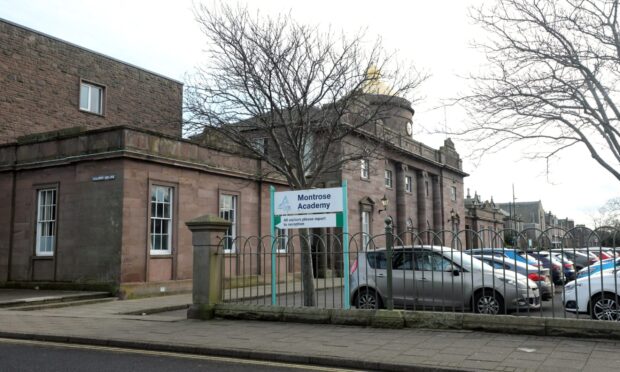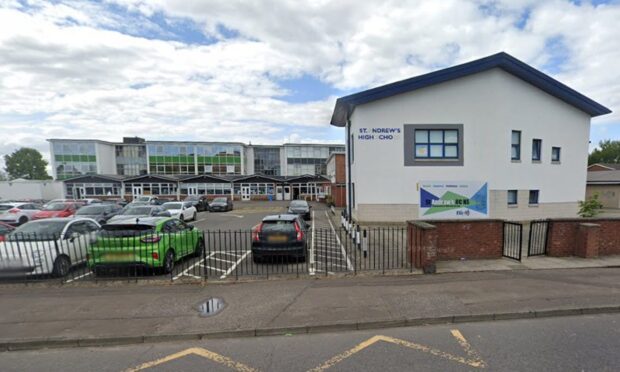People should be worried but not panic about Covid-19 cases in Tayside and Fife schools, according to an academic advising the government response to the epidemic.
Professor Stephen Reicher said the 50 cases at 10 schools, a nursery and an out-of-school club in Dundee, Perthshire and Fife were a reflection of increasing infection rates in the community and more were likely.
The St Andrews University social psychologist advises both Westminster and Holyrood as a member of the UK Government’s Scientific Advisory Group for Emergencies (Sage) behavioural group and the Scottish Government’s Covid-19 advisory group.
He said: “Of course we should be worried, any infection is worrying. This is an unpleasant disease and we are learning more about it all the time.”
The science is still in flux around the question of transmission between children so we should be worried enough to be careful but I don’t think we should be so worried as to feel panicky or to feel that we are in the midst of a catastrophe.”
Professor Stephen Reicher
Children were as likely to be hit by lightning as to die from the virus, he said, but added: “We don’t yet know a number of things, like its long term effects on health in young people. It might be none but it’s too early to tell.
“The science is still in flux around the question of transmission between children so we should be worried enough to be careful but I don’t think we should be so worried as to feel panicky or to feel that we are in the midst of a catastrophe.”
The Scottish Government and health authorities have stressed there remains no evidence of transmission within schools.
Only three of the 40 cases associated with Kingspark School, Dundee, were in pupils, while there were two linked cases at Happy Times out-of-school club. The other schools – Grove Academy, Queen Anne High School, St John’s RC Academy, St Clement’s, Ss Peter and Paul’s, Newhill and Oakbank primary schools, and Newburgh Primary School nursery – had only single cases.
Prof Reicher said: “The evidence seems to suggest thus far these are cases brought into the schools from the community rather than examples of transmission in schools and reinfecting the community.
“That could occur but as yet doesn’t seem to be occurring so this is more a reflection of what’s going on in the community, rather than a specific problem for schools.”
Referring to a report published on Tuesday which suggested pupils in the most deprived areas of England were more likely to be four months behind in their learning than those in more affluent areas, he said: “We need to balance the risks of going to school against the risks of not going to school.
“For most kids the greater risk is not being in school.”
More teachers and more space
Prof Reicher said “we would be in trouble” if transmission in schools did occur and so mitigation measures must be looked at, including adequate space to allow distancing in classrooms and ventilation.
This would involve, he said, hiring more teachers and obtaining extra space and added: “It is possible, it’s been done in some places but it costs. These are questions of cost and priority.”
It was also vital, he said, to ensure children self-isolating had access to computers and wifi to study at home.
In just one day last week, Scottish Government figures showed 19,533 pupils were off school self-isolating.
Prof Reicher said: “We’ve got to provide for digital equality and it’s got to be a priority because kids are going to be sent home and as ever it’s going to be the poor kids who are going to suffer.”
Testing must also be easily accessible to all, including those without cars, and financial support offered to parents who can’t work because they are self-isolating.
If there is the threat of schools closing, Prof Reicher said the country must be careful to avoid steps which increase community transmission.
He said: “Scotland is doing better than England on this by a long way.
We might have to ask ourselves the question ‘what is more important, pubs or pupils?’”
“At the moment in England as they are opening schools they are telling people to go back to work when they can work at home and I don’t think that’s helpful.
“Nevertheless, at some point we might have to ask ourselves the question ‘what is more important, pubs or pupils?’
“We might have to think about those spaces which are leading to transmission.
“There may be some tough choices down the road but, equally, everybody has got their responsibilities.
Abiding by the rules
“If people are thinking about breaking the rules, if people are thinking about house parties they need to be aware of the fact that it’s those actions which could lead to kids not getting an education.
“People shouldn’t panic but people should absolutely abide by the guidelines.”
There have also been cases of Covid-19 in a number of schools in Lanarkshire, Greater Glasgow and Clyde, Lothian, Highlands, Grampian and the Borders.
Prof Reicher said: “In many ways it was inevitable this was going to happen to some degree, we just couldn’t tell how much.
“In the context of rising overall infection levels in Scotland, and the last few days suggest they are rising, this is going to become a greater problem in schools because the greater the community transmission the more cases will be brought into schools.
“It’s not something unexpected and we really need to plan for it.”
He said parents should be “reassured but not complacent” about the lack of apparent transmission within schools.
He said: “We are in a position where there are infections but it’s not out of control.
“If we have the adequate mitigation I’ve talked about we can keep on top of this but it’s really important we do so.”











